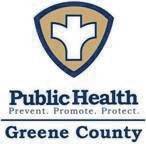
XENIA — Greene County Public Health (GCPH) and the National Ground Water Association (NGWA) are encouraging residents to protect public health and the health of the environment by protecting groundwater all year long.
Protect Your Groundwater Day— this year on Tuesday, Sept. 1 — is an annual observance established to highlight the responsible development, management, and use of groundwater. The event also encourages yearly water well testing and well maintenance.
In Ohio, approximately 1,949,000 residents rely on individual household water wells while another 2,780,965 residents rely on public water supplies that use groundwater in all or part, according to a GCPH release. GCPH officials said everyone has a stake in maintaining groundwater quality and quantity.
Health officials said 99 percent of all available freshwater comes from aquifers underground.
“Being a good steward of groundwater just makes sense,” GCPH officials said. “Not only that, most surface water bodies are connected to groundwater so how you impact groundwater matters.Furthermore, many public water systems draw all or part of their supply from groundwater, so protecting the resource protects the public water supply and impacts treatment costs.”
For residents who own a well to provide water for their family, farm, or business, groundwater protection is doubly important.
“As a well owner, you are the manager of your own water system,” officials said. “Protecting groundwater will help reduce risks to your water supply.”
Protect Your Groundwater Day is an occasion for every citizen to ACT: Acknowledge the issue, Consider how it applies to you, then Take action.
Here are some action steps individuals can take courtesy of GCPH and NGWA:
1. Acknowledge the causes of preventable groundwater contamination.
For everyone:
— There are hazardous substances common to households.
— Most household water use occurs in a few areas around the home.
If you own a water well:
— Wellheads should be a safe distance from potential contamination.
— Sewage treatment system malfunctions can pollute groundwater.
— Poorly constructed or maintained wells can facilitate contamination.
— Improperly abandoned or sealed wells can lead to groundwater contamination.
2. Consider which applies to you.
For everyone:
— What specific hazardous substances are in and around your home?
— Where do you and your family use the most water?
If you own a water well:
— Is your wellhead a safe distance from possible contamination?
— Is your well/sewage treatment system due for an inspection?
— Are there any abandoned wells on your property?
3. Take action to prevent groundwater contamination.
Everyone:
When it comes to water conservation:
— Modify your water use.
— Install a water-saving device.
When it comes to hazardous household substances:
— Store them properly in a secure place.
— Use them according to the manufacturer’s recommendations.
— Dispose of them safely.
— Do not flush prescription or over-the-counter medications down the toilet.
If you own a water well:
— Move possible contamination sources a safe distance from the wellhead.
— Get current on your sewage treatment system inspection and cleaning.
— Get an annual water well system inspection and take a water sample.
— Properly decommission any abandoned wells using a registered water system contractor.


